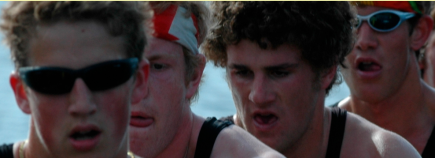Is Mental Toughness All It’s Cracked Up To Be? asks Jason Dorland – and gives answers to our audience.
THE CONTEXT:
By continually celebrating the merits of mental-toughness, are coaches possibly limiting their athlete’s ability to reach their highest potential?
What if telling our athletes they need more grit in order to be successful was actually restricting their ability to train and race at their highest level? Sound crazy? Well, 20 years ago I would’ve thought so—but now, I’m not so sure. When we think of elite-athletes, we’d be hard-pressed to describe most of them without including the label “mentally tough”—I get that. In fact, I would consider that my ability to “push through” painful training sessions when I was rowing is what helped me reach the levels I did. However, what if instead of pushing through those painful moments, we were able to give in to them and just go along?
WHERE TO BEGIN:
Is grit really the main ingredient when it comes to high-performance, or as ex-athletes-now-turned-coaches do we just like to think so because it’s means that when we were young we were—ya know—tough!
Don’t misunderstand me, I appreciate that there’s a time and a place for mental toughness in sport. I can remember some nasty rowing workouts back-in-the-day that were incredibly painful and the only reason we were able to get through them was because of our mental tenacity. However, today, when I listen to coaches describe the virtues of mental toughness, it makes me think that we’re missing out on an opportunity to go beyond the limits we have taught our athletes to simply tolerate.
When I think of mental toughness, I think of opposing forces. Words like conflict, fear and grind come to mind. As if we’re trying to overcome an obstacle—in this instance, a workout or a competition. What if we taught our athletes to embrace training sessions and competitions as if they were something to experience on a deeper level? Now, I realize it’s hard to imagine a max-V02 workout as anything put painful—but what if it was? What if we were able to change the way our athletes perceived training and the resulting pain that sometimes accompanies it? Imagine viewing training and competing as not something to overcome, but instead as something to connect with—to be a part of in the moment. When I think of that scenario, synergy comes to mind.
In 1988 while training for the Seoul Olympics, I remember one winter workout in particular. It was a max-VO2 session on the ergometer—10 x 3 minutes on 2 minutes rest. Ugh, just writing that out makes my hands sweat as I recall the pain that accompanied such an undertaking. However, I will never forget the moment when somewhere during the 5th piece, in the midst of excruciating agony, my mind stopped fighting the pain and, instead, gave into it. For the remaining workout, I felt as if I couldn’t make myself tired if I tried.
Today, we would call that experience being in flow. At the time, I just experienced it as something out of my control. With each 3-minute piece I got stronger, not weaker. In fact, I remember smiling numerous times as I uncovered newfound strength with each stroke. It was like magic! Well, what if it wasn’t magic? What if that sort of experience was IN our control—now there’s an opportunity. If we could create that kind of flow for our athletes every time they performed, and not just by accident—imagine the possibilities!
THE OPPORTUNITY:
The current competitive paradigm tells us that in order to overcome pain, we must be tough. However, what if it told us to embrace pain as a something to work with? Surely, that subtle shift would not only help our athletes in their quest for high-performance, but it might actually allow coaches to retain more athletes.
How many times have you heard the expression, “80% of the game is mental”? I’m guessing more than a few. Okay, then if that’s true—why don’t we spend 80% of our coaching time working with our athlete’s mental and emotional skills when it comes to how they approach performance? I have said it many times before, that part of our athlete’s development is THE most undervalued and underutilized part of coaching. Changing how we frame training and competing for our athletes would surely be a good start in working towards optimizing their mental game?
Furthermore, it doesn’t have to end with our perception of pain. I would go so far as to include our perception of our so-called competitors. When we describe them as obstacles and enemies to overcome or beat, are we really helping our athletes engage fully? Again, I would suggest that framing competition in this manner impedes an athlete’s ability to perform—not support it. As my friend David Meggysey—the ex-NFLer and author of the critically acclaimed book “Out of Their League”—shared with me recently, the root of the word compete is competere, which means to strive together. Therefore, we have completely misconstrued the essence of competition to align with old-school values that don’t serve the athletes or their high-performance goals.
Sure, Hollywood’s portrayal of sport being for the tough and determined sells more tickets at the box-office, but like so much that we’ve bought from Hollywood, I think we may have been short-changed!


Jason Dorland is the latest coach to join the Rowperfect stable of for-hire experts.
He is a High-Perfomance Coach who believes the most undervalued and underutilized components of reaching our goals are the mental and emotional areas of our lives. Have a look in to our shop to find equivalent books.








This Post Has 3 Comments
Well said Jason,
To read how in the middle of a tough session you accepted the pain goes a long way to building a strong mind. Instead of fighting the session, we must understand that time will come and time will go, and before you know it you will be back in school/college/work or bed, with a sense of achievement and also some additional mental strength in the bank.
In my own experiences, mental toughness increases over time with each training session.
A good training session will not only push the body, but the mind also. How many times have we sat on an erg or in a boat at the beginning of a session and thought “how am I going to get through this?” Your mind is doubting your body’s ability. But with a correctly loaded and progressive training program, the body should win every time, and so over time, the mind accepts and trusts the body’s ability. The most important component here is that the training program is carefully loaded. Too much and the body will break down, and while the physical recovery time is relatively short, the mental scars may run much deeper and take longer to heal. Ask anyone who has stopped short in an erg test ! The demons are not exorcised until the next successful test is completed.
The NIKE slogan “Just Do It” seems very appropriate for these tough sessions.
Brian O’Keeffe
Agreed, Brian—our demons can rule the roost sometimes!
As much as I understand what you mean by “mental toughness”—I like to call it “mental knowing.” That way it comes without all of the machismo and bravado that we associate with being tough and can cloud the meaning. I like to encourage athletes that there’s nothing more powerful than showing up on race day with a quiet, confident knowing of what you’re capable of and where you’re prepared to go in order to find your highest performance. My experience tells me that it’s the quiet crews you want to pay attention to, not the loud and cocky ones!
All the best,
jason
An interesting frontier, for sure. What if athletes shed the “pain cave” metaphor entirely and stopped thinking that pain tolerance is the deciding factor in racing? I wonder what percentage of champions at any level of our sport would agree that their ten best performances correspond precisely with their ten most painful races? Very few, I suspect. Must be something else at work, then.